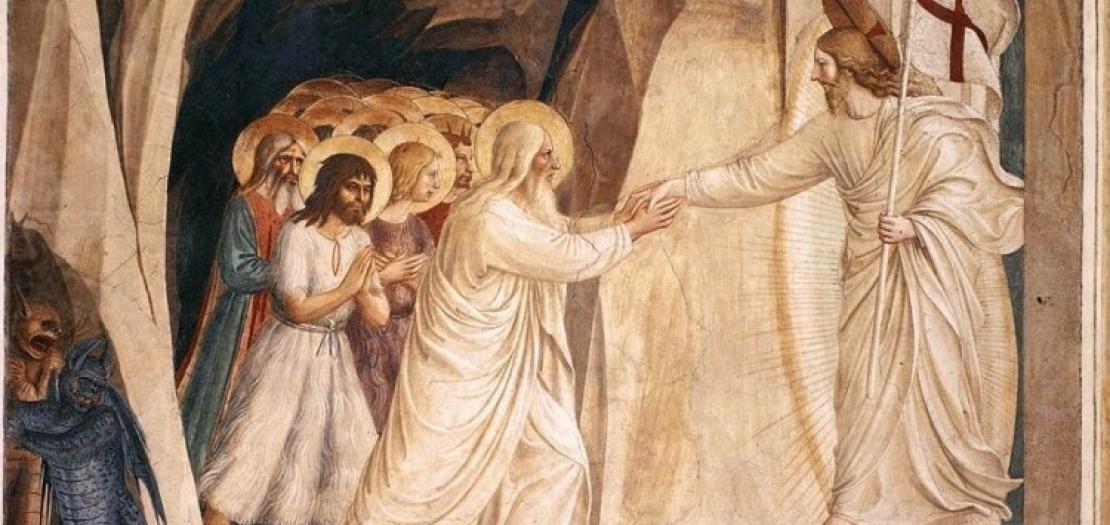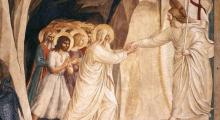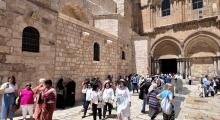Issued by the Catholic Center for Studies and Media - Jordan. Editor-in-chief Fr. Rif'at Bader - موقع أبونا abouna.org

Following is the text of the meditation by His Beatitude Cardinal Pierbattista Pizzaballa, Latin Patriarch of Jerusalem, on the Commemoration of all the faithful departed, dated October 30, 2025:
Today’s Liturgy of the Word helps us live this day in remembrance of all the faithful departed, not only those dear to us, but also those we did not know personally, yet are our brothers and sisters in humanity.
The liturgy offers a wide range of choices for the readings. We will focus on the passage from the Gospel of John. It is a text that helps us look at the theme of death through God’s eyes, for only by adopting this perspective can we truly have hope.
In fact, the word “death” does not appear in the passage the Gospel of John that we have just heard. (John 6:37–40) It is found throughout the entire passage, remaining in the background, but is not mentioned directly.
One of the distinctive traits of the Evangelist John is his use of the language in which everything is renamed and redefined in the light of the Resurrection.
In John’s Gospel, Jesus uses new words to describe the realities of this life that the Father has handed Him, realities that He has fully embraced, without rejecting anything. As Jesus Himself says: “Everything that the Father gives me will come to me.” (John 6:37). Everything that is human, every reality of our life, has been given to Jesus by the Father.
Jesus accepts it, lives it fully, without avoiding anything, and it is precisely this act of acceptance becomes the space where human reality is renewed and transformed, so that it becomes the way that leads to the Father.
Thus, Jesus gives these realities, even the most painful and dramatic ones, a new name and a new meaning: They are emptied of their familiar meaning to reveal their deeper meaning hidden within God’s plan.
For example, John does not speak of the “Cross,” but of “Exaltation,” of “Glorification.” He does not describe judgment as a courtroom, but as the revelation of the truth: “And this is the verdict, that the light came into the world”. (John 3:19). Suffering becomes similar to childbirth, (John 16:21) and the same for the darkness, the tomb, and loss — everything becomes a place of passage.
Even for death, John uses new names and meanings, and this is precisely what we see in today's Gospel. We are in the sixth chapter of the fourth Gospel, the chapter that revolves around the theme of the Bread of Life: Jesus' life is given to humanity as the living bread, so that his life may nourish our relationship with God, a relationship of deep communion that even death cannot destroy.
Jesus speaks of this reality with two powerful expressions: “I will not reject anyone who comes to me,” (John 6:37) and shortly after: “This is the will of the one who sent me, that I should not lose anything of what he gave me, but that I should raise it [on] the last day.” (John 6:39)
This means that death can be frightening because it represents the threat of being separated, rejected, and forgotten, the fear that our lives might be lost, that no one will come looking for us when our earthly life ends, that the relationships which gives us life will cease to exist, leaving us in some “outside” place (Jn 6:37) where we are cast away.
Jesus meets humanity precisely in this fear. He does not promise that we will not die, nor does He deceive us into thinking death can be avoided. Rather, He promises that even in death, He will not lose us, that He will come to find us. Death thus becomes the place of encounter: this is the new name of death. Nothing of our life and who we are will be lost, but everything will become a reason and an opportunity for an encounter with the Father’s mercy, and we will remain alive in Him, in His memory.
All this is possible because Jesus has “come down.” As He says Himself: “I came down from heaven not to do my own will but the will of the one who sent me.” (John 6:38)
Jesus came down from heaven precisely to seek humanity, and He did so in perfect harmony with the Father, whose will is precisely that every person be saved — that each one remains always in relationship with Him.
We too, then, can learn a new language, the language of the resurrected, of those who call things as God calls them, starting from this day, when we no longer simply remember our dead, but remember all those who have passed through death and have not been lost, but are alive, kept safe in the Son who loses nothing.
+Pierbattista







